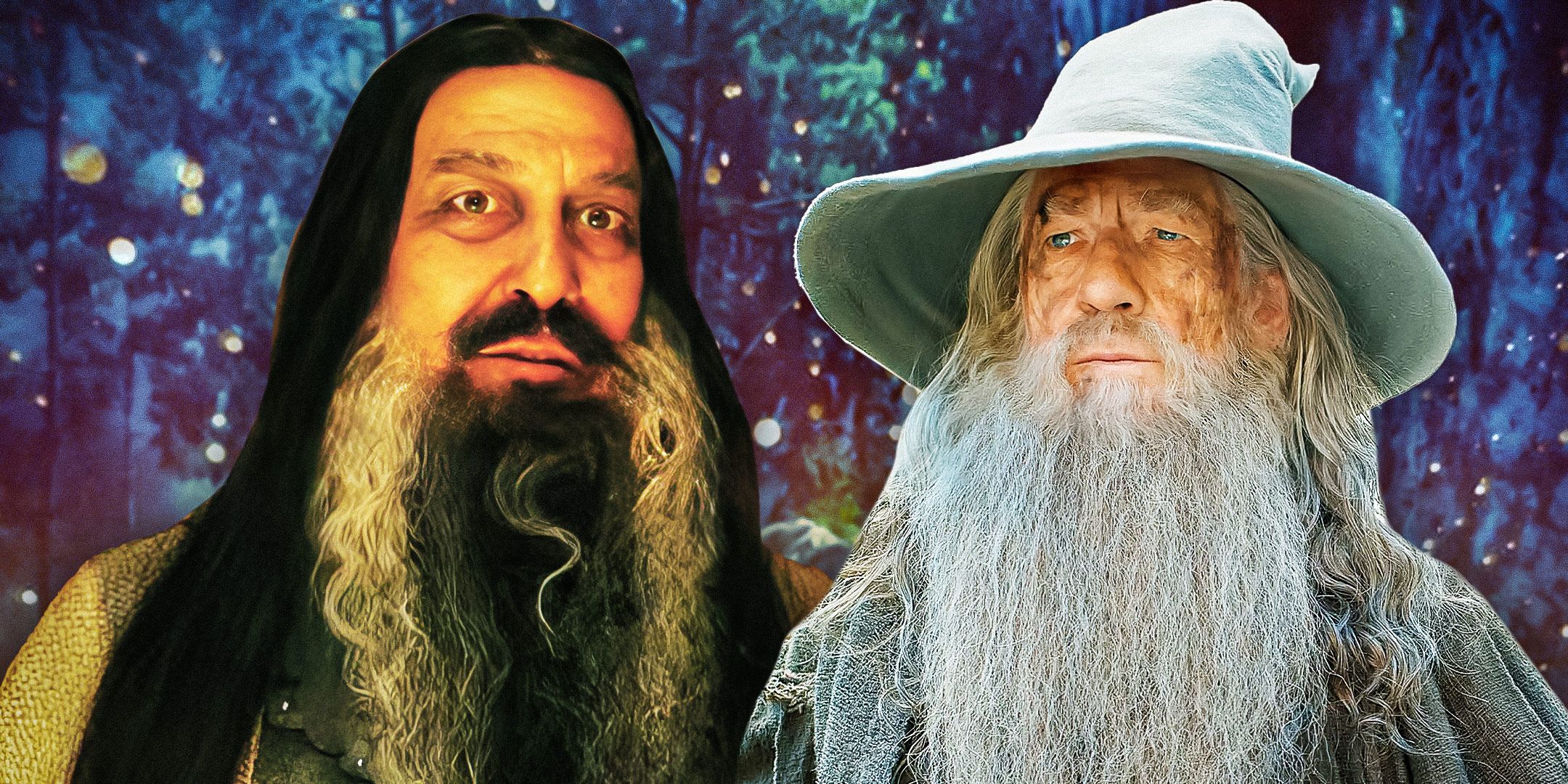
We know there are five wizards talked about in The Lord of the Rings . One of them is Saruman, one of them is Gandalf, one of them is Radagast, and then there are two others. It is our expectation that he will be one of those two others.
The Rings of Power covers the history of Middle-earth’s Second Age, a period of Tolkien’s history that’s barely examined in the books. This allows the show’s writers to interpret the material in their own way, which they’ll seemingly be doing with one of the two Blue Wizards, characters primarily mentioned in Tolkien’s Unfinished Tales. It’s important to note that Amazon previously stated that they didn’t have rights to the contents of Unfinished Tales, which could be why the character hasn’t been named in the show. There’s no confirmation regarding whether or not they have the rights now.
Tolkien’s Explanation For Why The Blue Wizards Are Elsewhere During The Lord Of The Rings Is Hazy
Tolkien’s Writings On The Blue Wizards Come From Incomplete Essays & Letters
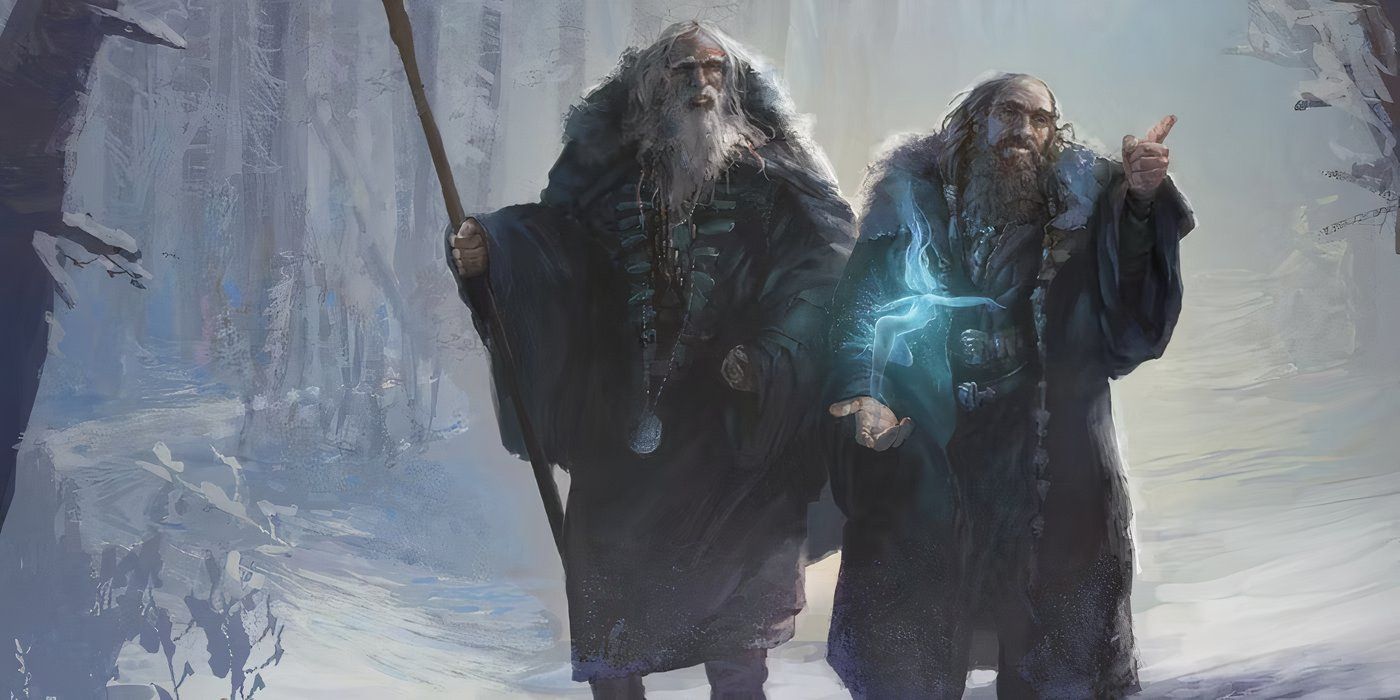
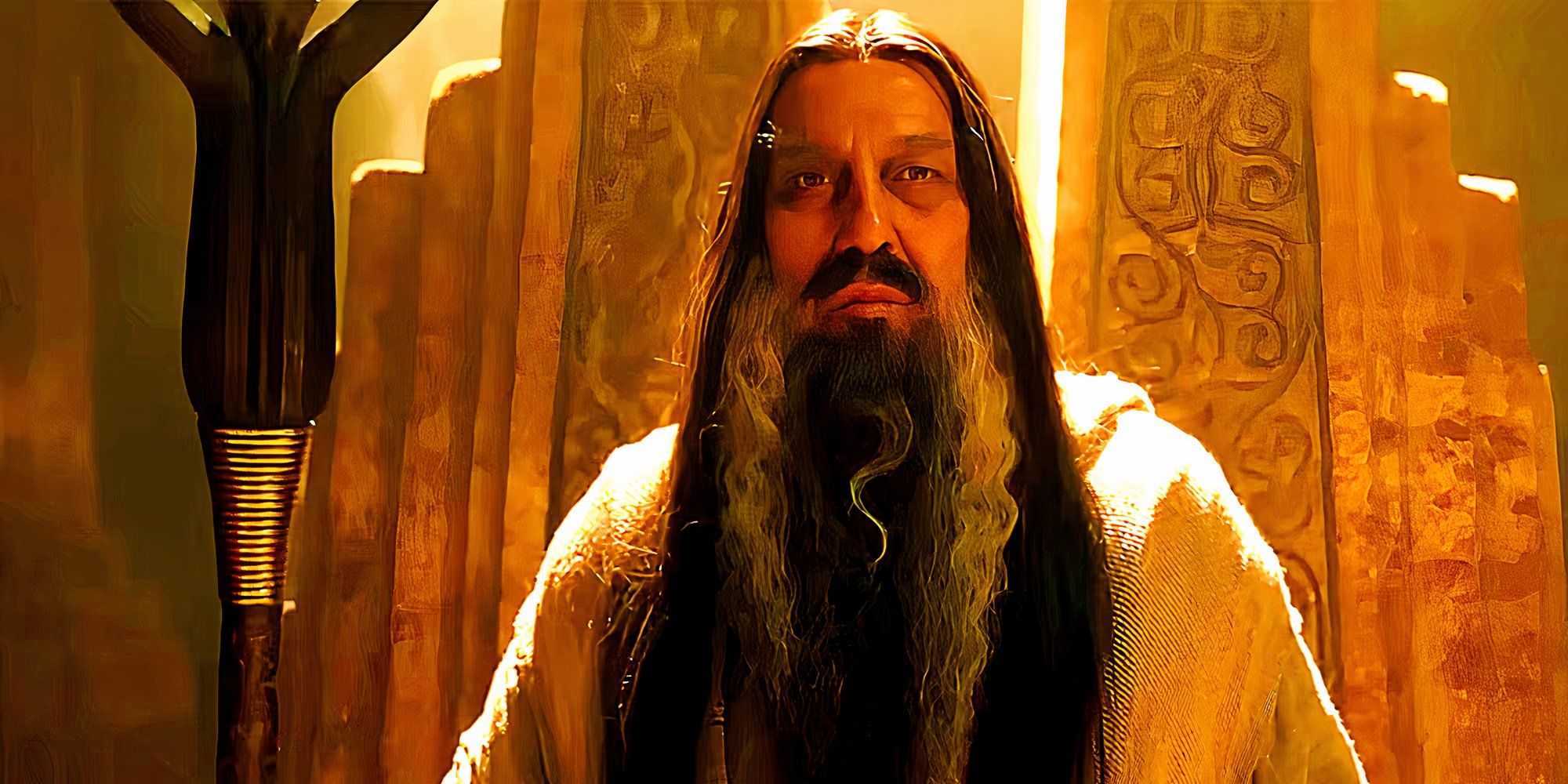
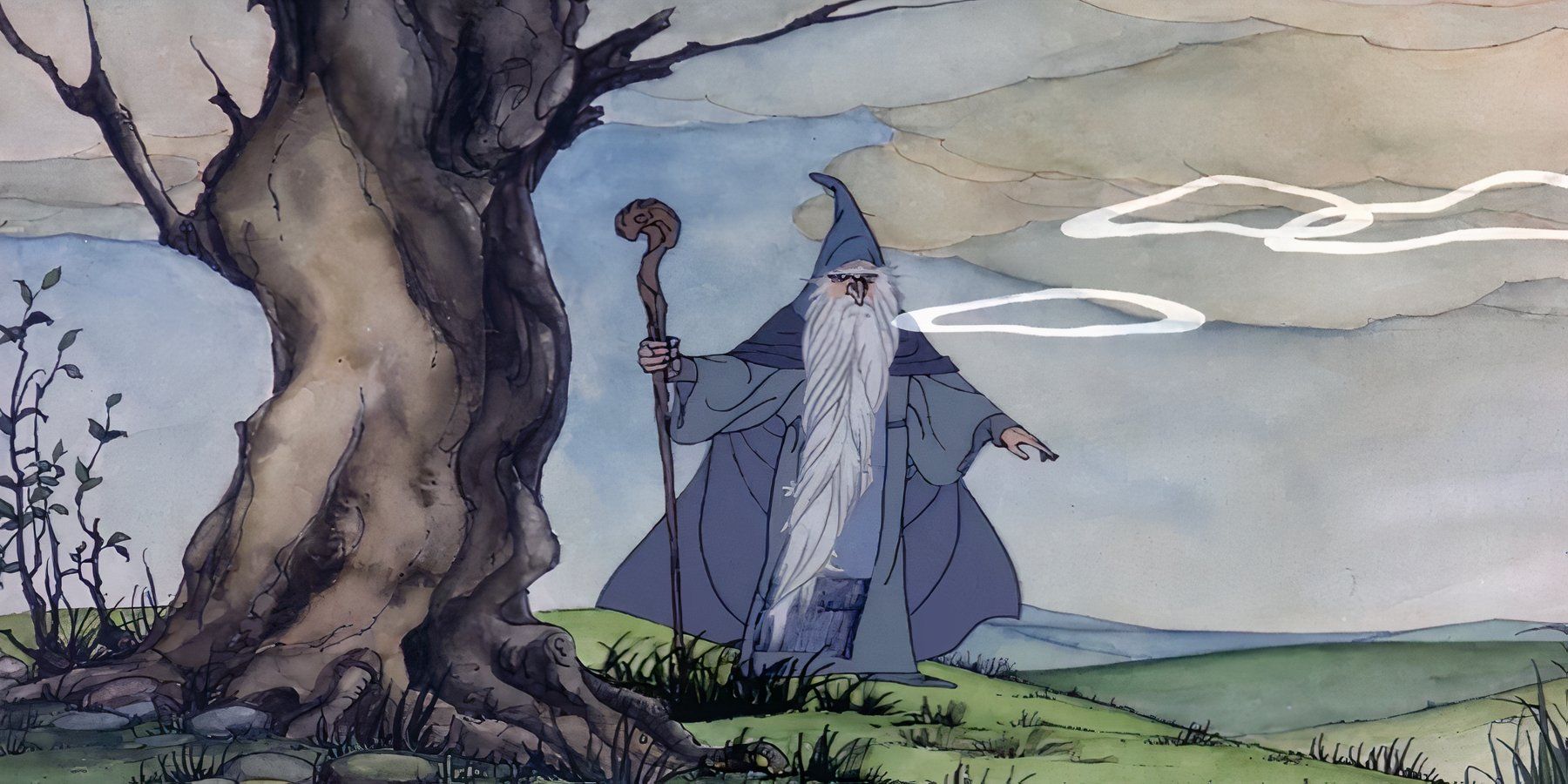
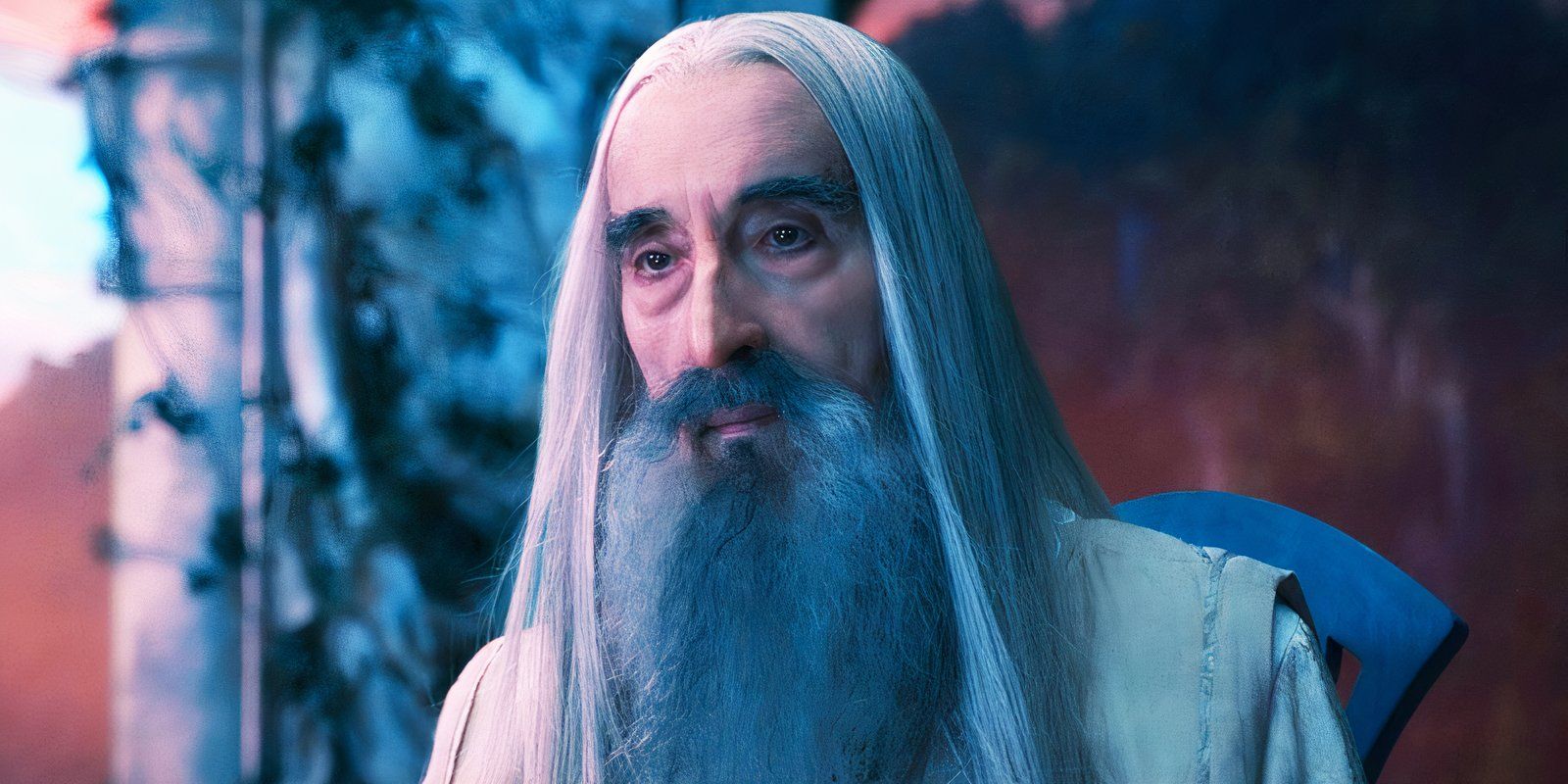
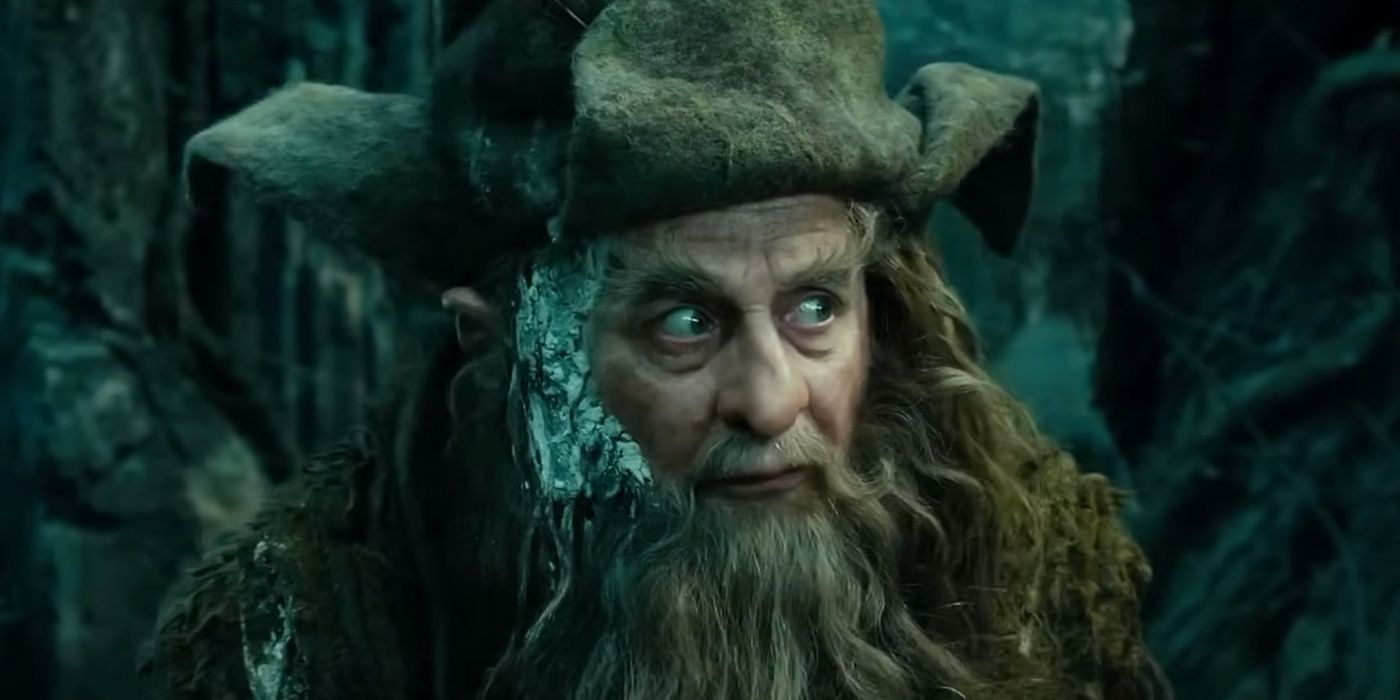





In Unfinished Tales, Christopher Tolkien analyzes an essay written by J.R.R. Tolkien in 1954, which is the basis for the chapter “The Istari.” It’s a small chapter in a large book, and scarce are the mentions of the Blue Wizards within it. The gist of the matter is that the five Istari (Wizards) were sent to Middle-earth to contest Sauron’s growing power, but only one remained true to his purpose: Gandalf. Of the four others, only one has an active role in The Lord of the Rings, which creates some confusion as to the whereabouts of the rest.
As audiences know from The Lord of the Rings, Saruman turned to evil before the War of the Ring, betraying his order due to pride and desire for power. Audiences will remember Radagast the Brown from The Hobbit, but according to Unfinished Tales, he “became enamored of the many beasts and birds that dwelt in Middle-earth, and forsook Elves and Men.” That leaves two wizards remaining who aren’t mentioned in The Lord of the Rings books or films.
Istari is the plural term, while Istar refers to a singular wizard. The same can be applied to Maiar and Maia or Valar and Vala.
In Unfinished Tales, J.R.R. Tolkien suggests that the two Blue Wizards had no names and traveled into the East with Saruman. Saruman returned, but they did not, and Tolkien offered multiple possibilities as to their fates, ultimately saying it’s unknown what happened to them. In a separate note, Tolkien referred to these wizards with the names Alatar and Pallando and described them as being associated with the Vala Oromë.
Tolkien also implies that Gandalf was the only Istar to return to Valinor, meaning the Blue Wizards remained in the East, alive or dead.
In a letter from 1958, he added that he “feared that they failed,” implying they had abandoned their mission to oppose Sauron. Instead, he suggested that they had become “founders or beginners of secret cults and ‘magic’ traditions that outlasted the fall of Sauron.” Importantly, Tolkien also implies that Gandalf was the only Istar to return to Valinor, meaning the Blue Wizards remained in the East, alive or dead.
The Rings Of Power’s Dark Wizard Being A Blue Wizard Explains The Mystery
The Dark Wizard Becoming Evil Explains Why He Wasn’t In LOTR
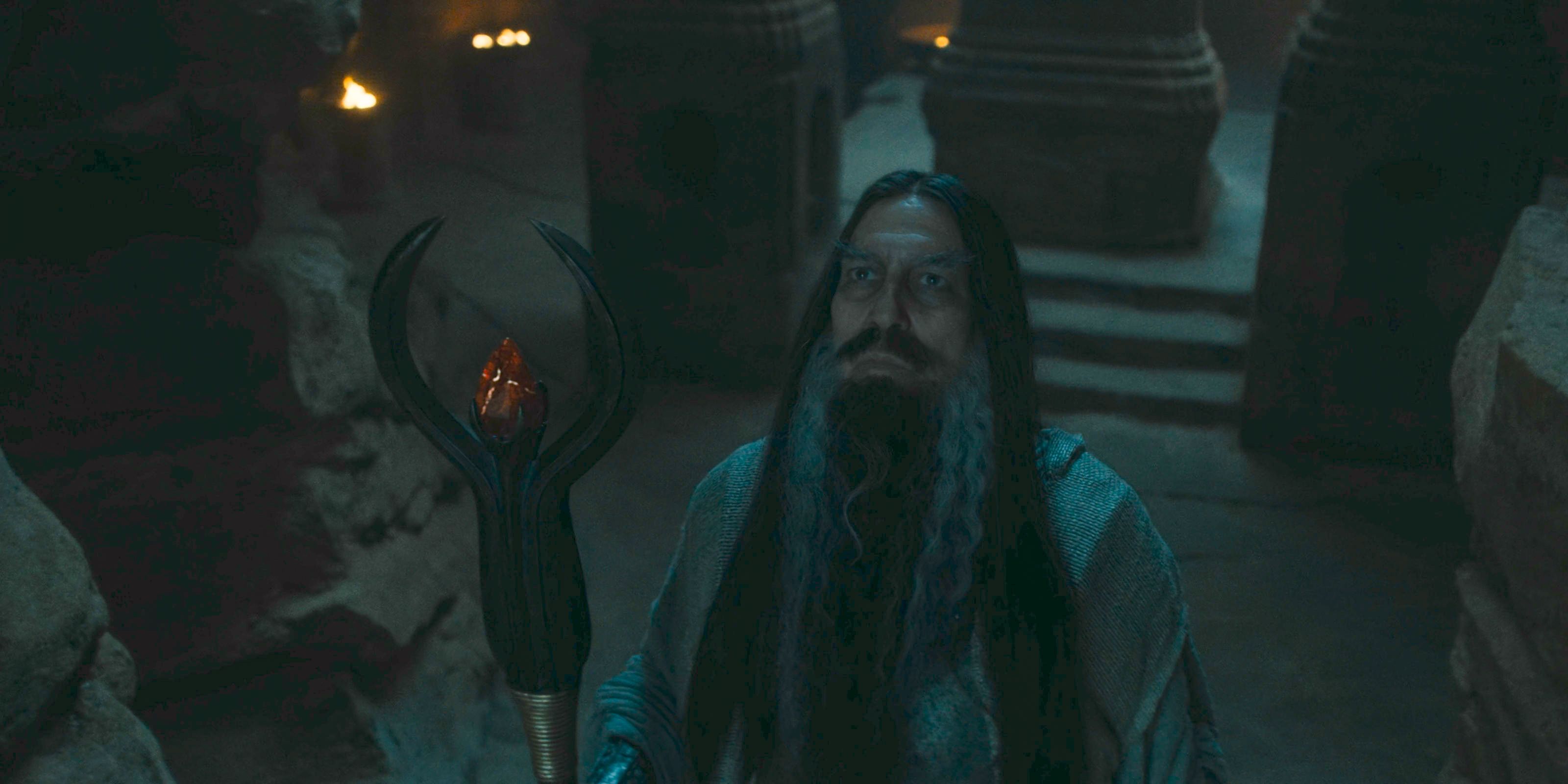
As it pertains to J.R.R. Tolkien’s books, readers can speculate as they please regarding the fate of the Blue Wizards. In The Rings of Power, JD Payne and Patrick McKay are posing their idea, which is befitting to the 1958 letter. There’s still not much known about the Dark Wizard character, but season 2 shows that he’s evil, which would explain why he wouldn’t end up fighting in The Lord of the Rings. Unfinished Tales even poses the idea that they might have fallen to the will of Sauron at some point.
If the Dark Wizard has committed evil acts in the Second Age in The Rings of Power, then it makes sense that he wouldn’t appear in the War of the Ring one way or another. Either he doesn’t care because he has his own evil stuff going on in Rhûn, or he’s reformed and good again but doesn’t trust himself because he was once evil and might be worried about the temptation of the One Ring. If Saruman, the leader of the Istari, was subjected to its power, then he may not think he could withstand it.
The remaining mystery in The Rings of Power would then be the fate of the other Blue Wizard. There could be another one still in Rhûn that Gandalf could team up with to fight the Dark Wizard. He could already be dead, killed by his companion. Or he could just have left to do his own thing, journeying the lands of Arda. Christopher Tolkien speculates in Unfinished Tales that J.R.R. Tolkien associated the Blue Wizards with Oromë because of a desire for journeys, so this is undoubtedly a possibility.
How The Rings Of Power Making A Blue Wizard Evil Fits Into Tolkien Canon
Tolkien’s Notes Suggested Evil Being A Possible Fate For The Blue Wizards
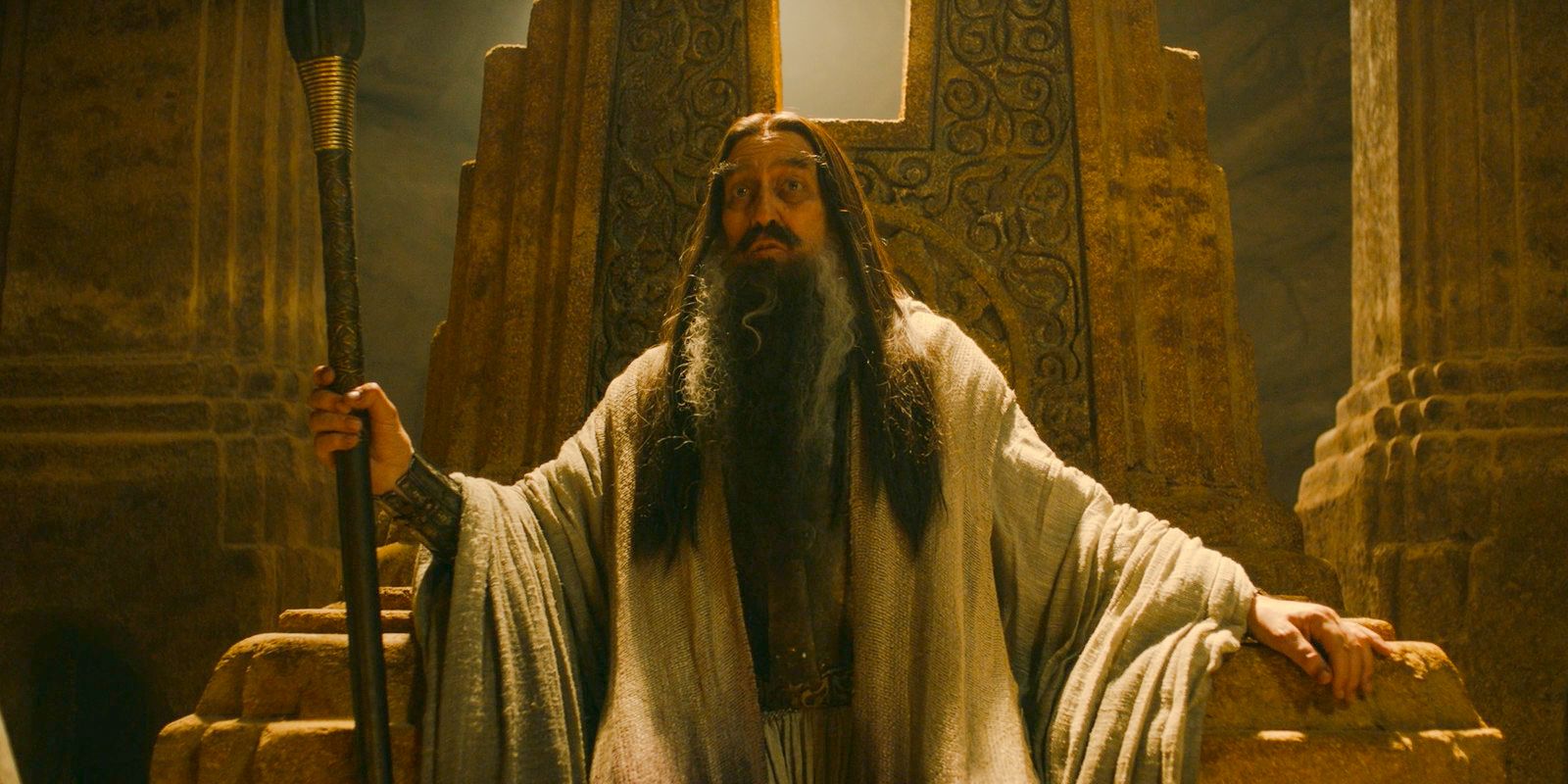
Much of the speculation surrounding The Rings of Power regards its faithfulness to J.R.R. Tolkien’s writings. Given the nature of the Second Age, the show’s writers are forced to make far more of their own assertions regarding the lore than Peter Jackson had to with the films, and what results is more intense scrutiny. As for the Blue Wizards, the decision to interpret one or more as being evil seems fairly in line with what Tolkien intended for these characters. Tolkien himself didn’t seem certain about the fates of Alatar and Pallando.
In line with what Tolkien wrote about them becoming founders of secret cults, the Dark Wizard in The Rings of Power seems to have established his own magical organization in Rhûn. Also, while he may be a villain in the show, the precise nature of his evil is still relatively unclear. The writers of The Rings of Power could still take this character in many different directions, exploring what exactly went wrong with the Istari’s mission on Middle-earth.




